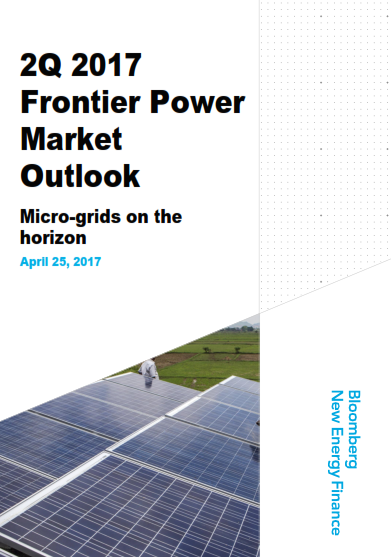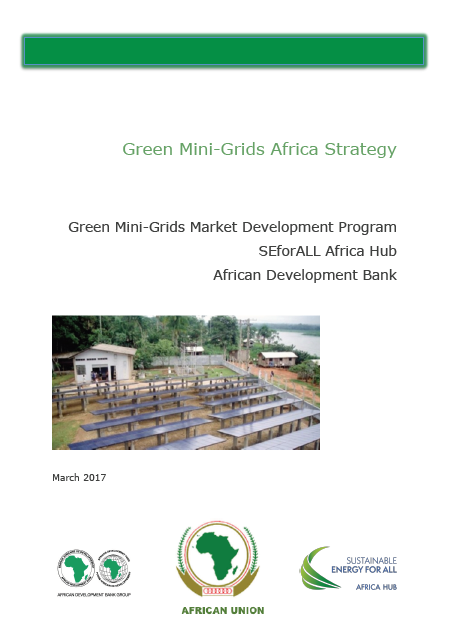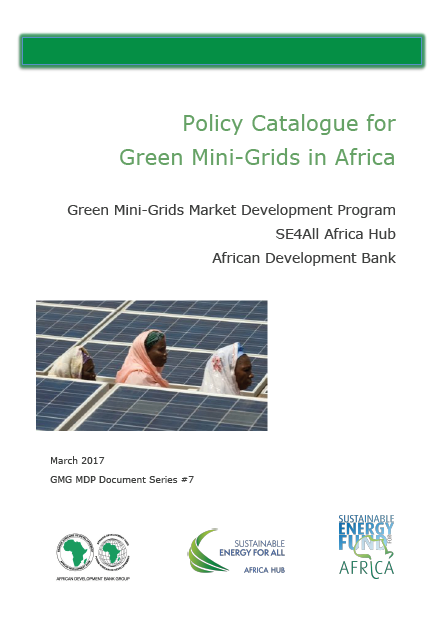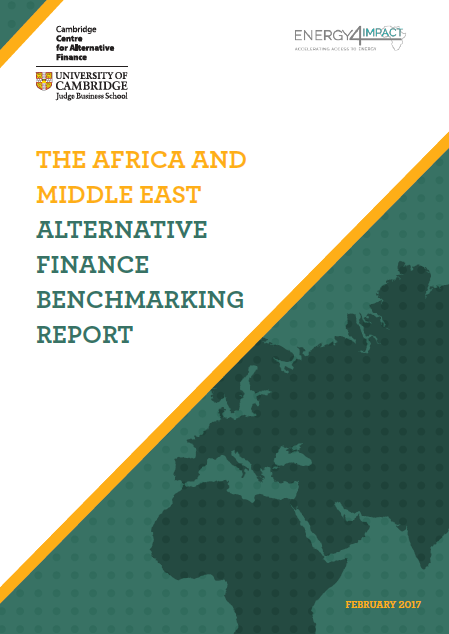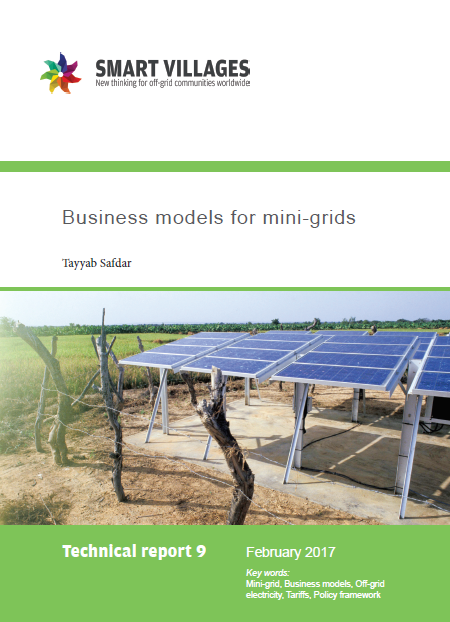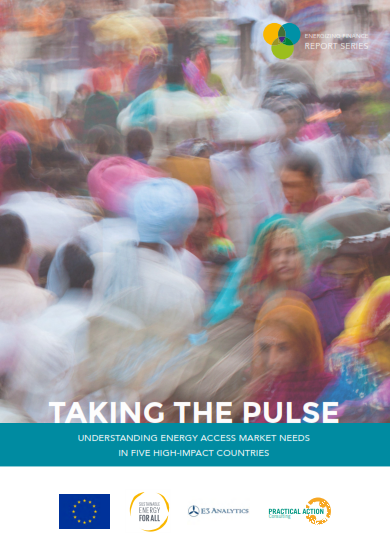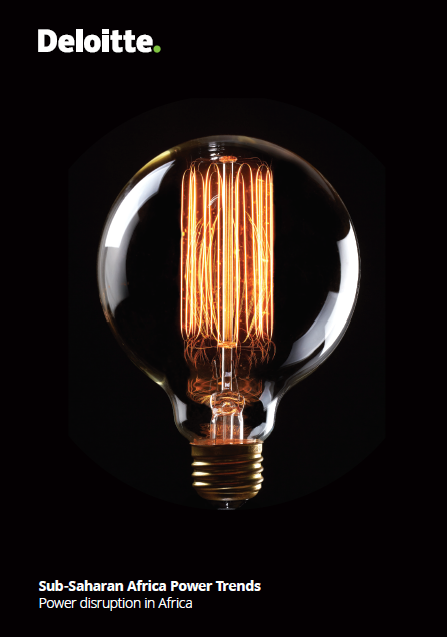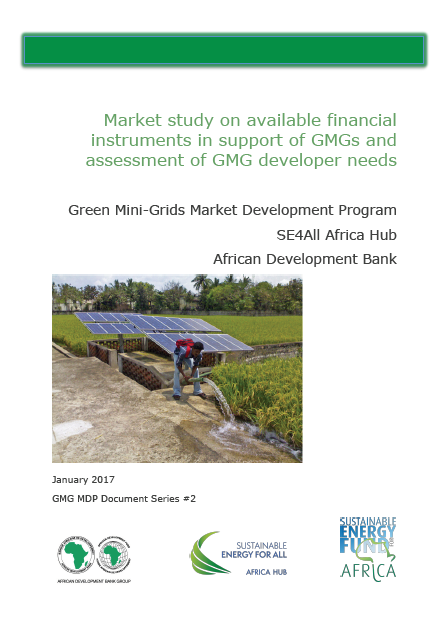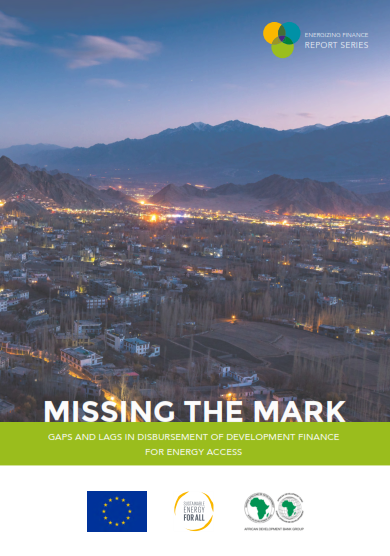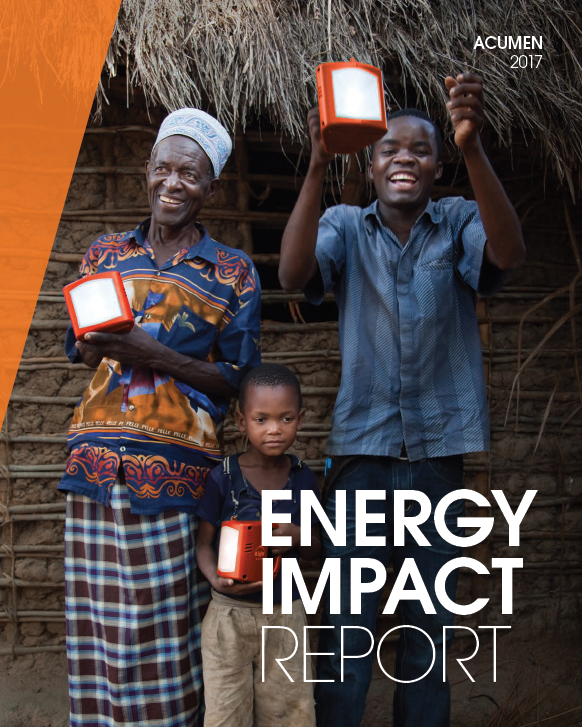We post here the relevant reports for the power sector in Africa. Feel free to join our efforts and share us any other you may have found. We'd be glad to add them to the list. Just sent an email to This email address is being protected from spambots. You need JavaScript enabled to view it.
Browse by Region:
Publication date: 2017, April
Author: Bloomberg New Energy Finance
Description: 2017 is shaping up as an important year of groundwork-laying for micro-grids in remote or un-electrified regions of the world. Storage companies and technology giants continue to lead the charge on solar and storage micro-grids while island communities are serving as test-beds for piloting new systems and ideas. This Market Outlook takes a closer look at the latest micro-grid developments, along with other important milestones in Frontier Power during 1Q 2017.
Visit Website >>
Publication date: 2017, March
Author: PNAS - Proceedings of the National Academy of Sciences
Description: This study identifies, characterizes, and values wind and solar electricity resources for 21 countries in the Eastern and Southern Africa Power Pools. We find that many countries possess potential many times their projected demand. However, because the most competitive wind and solar resources are spatially uneven, international transmission could allow the region as a whole to benefit from “no-regrets” or low-cost, low-impact, and highly accessible resources. International energy trade also lowers system costs by reducing the need for conventional power plants and allows lower impact, more accessible renewable energy sites to be cost competitive. Regional interconnections planned around strategic siting opportunities are crucial for realizing no-regrets wind and solar energy development that can be competitive with conventional generation in African countries.
Download Report >>
Visit Website >>
Publication date: 2017, March
Author: AfDB
Description: The GMG Strategy proposes that African governments prioritise these issues for immediate action, so as to create the necessary foundation for national GMG market development. Action required: Design streamlined GMG licensing requirements and procedures for legitimate GMG service providers, including the preparation of mini-grid standards that ensure the required quality, safety and consumer protections.
Download Report >>
Publication date: 2017, March
Author: AfDB
Description: This catalogue represents the most current and comprehensive comparative representation of the green mini-grid (GMG) policy status for all African countries to date. It provides links to further details and compiles the latest publicly available material. Although other GMG policy sources are available, they are neither exhaustive, nor do they encompass the realities of the status in all African countries.
Download Report >>
Publication date: 2017, March
Author: AfDB, IMF and WBG
Description: The G-20 Compact with Africa (CWA) Initiative, under the G-20 Finance Track, provides a framework for boosting private investment and increasing the provision of infrastructure in Africa. The initiative aims to help African countries seize their potential for sustained and inclusive economic growth by mobilizing governments and their international partners to implement concrete measures to significantly increase private and infrastructure investment in Africa.
Download Report >>
Publication date: 2017, March
Author: Proparco
Description: This issue of Private Sector & Development explores the benefits – and the requirements – of increased intervention in electricity production by the private sector. How have independent power generation projects established in Africa fared to date? What are the main obstacles in the way of their growth? Can private projects help to facilitate a shift towards renewable energies? Can decentralized means of production that are not connected to the main electricity grid (“off-grid”) ease access to retail customers and SMEs? As a general rule, developing efficient public-private partnerships would seem to be the best – indeed perhaps the only – solution for confronting the major challenge of sub-Saharan Africa’s energy deficit.
Download Report >>
Publication date: 2017, February
Author: Energy 4 Impact
Description: The new report, covering 46 countries in Africa and 12 countries in the Middle East, gathered survey data from over 70 alternative finance platforms between 2013-2015. The study details the types of online alternative finance, ranging from reward-based crowdfunding to peer-to-peer business lending, that are prevailing in African and Middle Eastern countries. It captures the industry volumes in key markets, documents the growth of alternative funding for start-ups and SMEs, analyses the latest market trends and explores the changing regulatory landscape in Africa and the Middle East.
Download Report >>
Publication date: 2017, February
Author: Smart Villages
Description: This report focuses on mini-grids that generate a substantial portion of electricity using renewable energy sources. The IEA (2011) estimates that mini-grids are the best solution for providing electricity to 45% of the rural population without access to electricity. Mini-grids can utilise locally available energy sources such as wind, solar, biomass, and hydro. Using locally available renewable energy sources has the advantage of low running costs, greater energy security, and lower environmental pollution.
Download Report >>
Publication date: 2017, February
Author: RECP
Description: The study elaborates on the activities and impact from well-established organisations involved in eLearning in Africa with a special focus on renewable energy education. It is the first study to provide an extensive overview over face-to-face and eLearning programmes and curricula for renewable energy in Africa and Europe. It also reveals an existing, however not sufficient awareness for the usage of educational technologies in African higher education. Moreover, it summarises learning technologies, which could be used to transform a didactical traditional face-to-face curriculum into a (blended) eLearning programme or curriculum for renewable energy studies. The study provides an interesting outlook and recommendations to strengthen eLearning for renewable energy higher education in Africa.
Download Report >>
Visit Website >>
Publication date: 2017
Author: Clean Energy Pipeline
Description: Clean Energy Pipeline has spoken to some of the world’s leading renewable energy investment firms and developers, which have demonstrated their respective abilities to accrue substantial returns while applying a risk-averse approach to Africa’s exciting and varied markets.
Download Report >>
Publication date: 2017
Author: Ijeoma Onyeji-Nwogu
Description: In this chapter we briefly revisit some of the key issues to consider for successful integration of renewable energy in Africa: Section 2 gives an overview of the contrast between energy poverty and resource abundance in Africa; Section 3 puts Africa in the context of the global energy shift toward renewables; Section 4 discusses some of the key aspects going forward; and Section 5 concludes.
Download Report >>
Visit Website >>
Publication date: 2017, January
Author: JCRA
Description: JCRA, in collaboration with the Centre for Economic and Business Research (Cebr), is launching a series of whitepapers focused on infrastructure in its various forms throughout sub-Saharan Africa.
Over recent decades, energy use across the world has increased considerably. From 1990 to 2015, total global energy consumption rose by 62%, driven mainly by higher energy consumption in emerging markets such as Africa and the Middle East. Higher energy consumption in Asia-Pacific has also been driven by fast-growing industrialising nations such as China, where total energy consumption grew 241% from 1995 to 2015.
Download Report >>
Publication date: 2017
Author: Sustainable Energy for All
Description: The report provides a pathway to elevate financing support for enterprises delivering decentralized renewable energy and clean cooking fuels and technologies to vulnerable populations in Asia and Africa. It suggests recommendations for government leaders, donors, development finance players and energy access enterprises that all play critical roles in accelerating access to electricity and clean cooking - two cornerstone priorities of the globally agreed Sustainable Development Goals.
Download Report >>
Visit Website >>
Publication date: 2017
Author: Deloitte
Description: This report is a summary of the consolidated point of view of the Deloitte power leaders across Africa, backed by research.
Download Report >>
Visit Website >>
Publication date: 2017, January
Author: AfDB
Description: This paper, part the Green Mini-Grid Market Development Programme (GMG MDP) document series, analyses the financing issues involved with developing green mini-grids for rural electrification. These are mini-grids powered by renewable energy resources – solar radiation, wind, hydropower or biomass – either exclusively or in combination with diesel generation.
Download Report >>
Publication date: 2017
Author: SE4All
Description: This new report, Missing the Mark: Gaps and Lags in Disbursement of Development Finance for Energy Access, provides useful insights about the effectiveness of finance commitments for energy access projects in selected developing countries. The findings are focused on 20 selected ‘high-impact’ countries predominantly in Sub-Saharan Africa and Asia, which have significant energy access gaps and can least afford delays in putting finance to work for actual on-the-ground projects.
Download Report >>
Publication date: 2017
Author: Acumen
Description: Our intent with this report is to share our impact and our insights from our journey investing in solutions to end energy poverty, and to inspire more people to recognize that, for the first time in history, bringing affordable electricity to every human on earth is within our collective reach.
Download Report >>
Publication date: 2017
Author: Sustainable Energy for All
Description: This new report, Understanding the Landscape: Tracking Finance for Electricity and Clean Cooking Access in High-Impact Countries, provides a pathway to refine and improve strategies to accelerate progress in delivering universal energy access.
Download Report >>
Visit Website >>
Publication date: 2017
Author: IRENA
Description: Sustainable energy solutions, including renewable energy, have sometimes su�ered from the perception that they come with too many trade-o�s, at the expense of overall socio-economic development. Undoubtedly, as governments around the world strive to put the 2015 Paris climate agreement into practice, they need to balance the urgency of the energy transition against numerous other considerations that a�ect people’s welfare.
Download Report >>
Publication date: 2017, January
Author: JCRA
Description: JCRA, in collaboration with the Centre for Economic and Business Research (Cebr), is launching a series of whitepapers focused on infrastructure in its various forms throughout sub-Saharan Africa.
The first paper in the series shines a spotlight on South Africa and its efforts to significantly boost energy infrastructure and power production through its Renewable Energy Independent Power Producer Procurement Programme (REIPPPP).
Download Report >>





